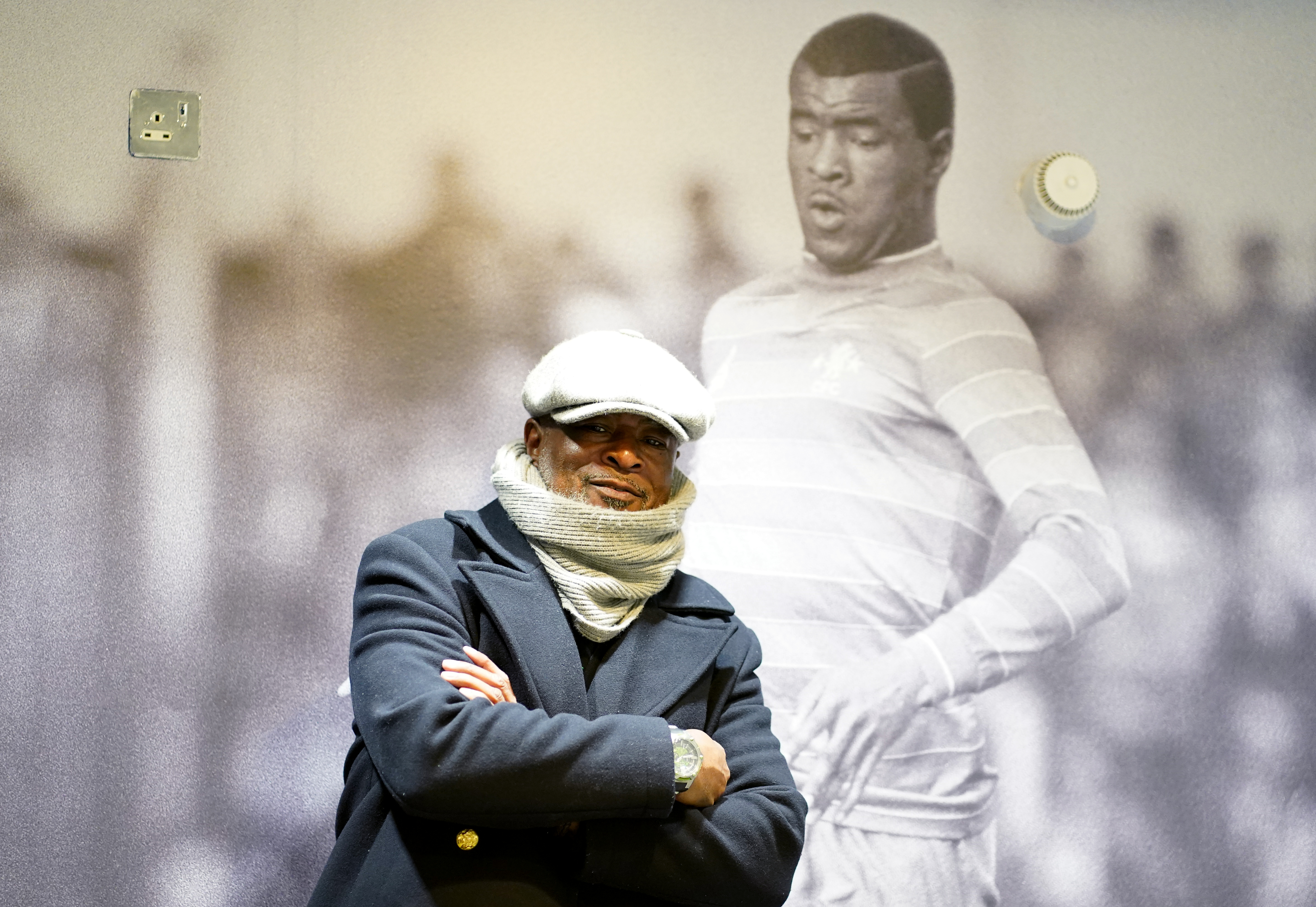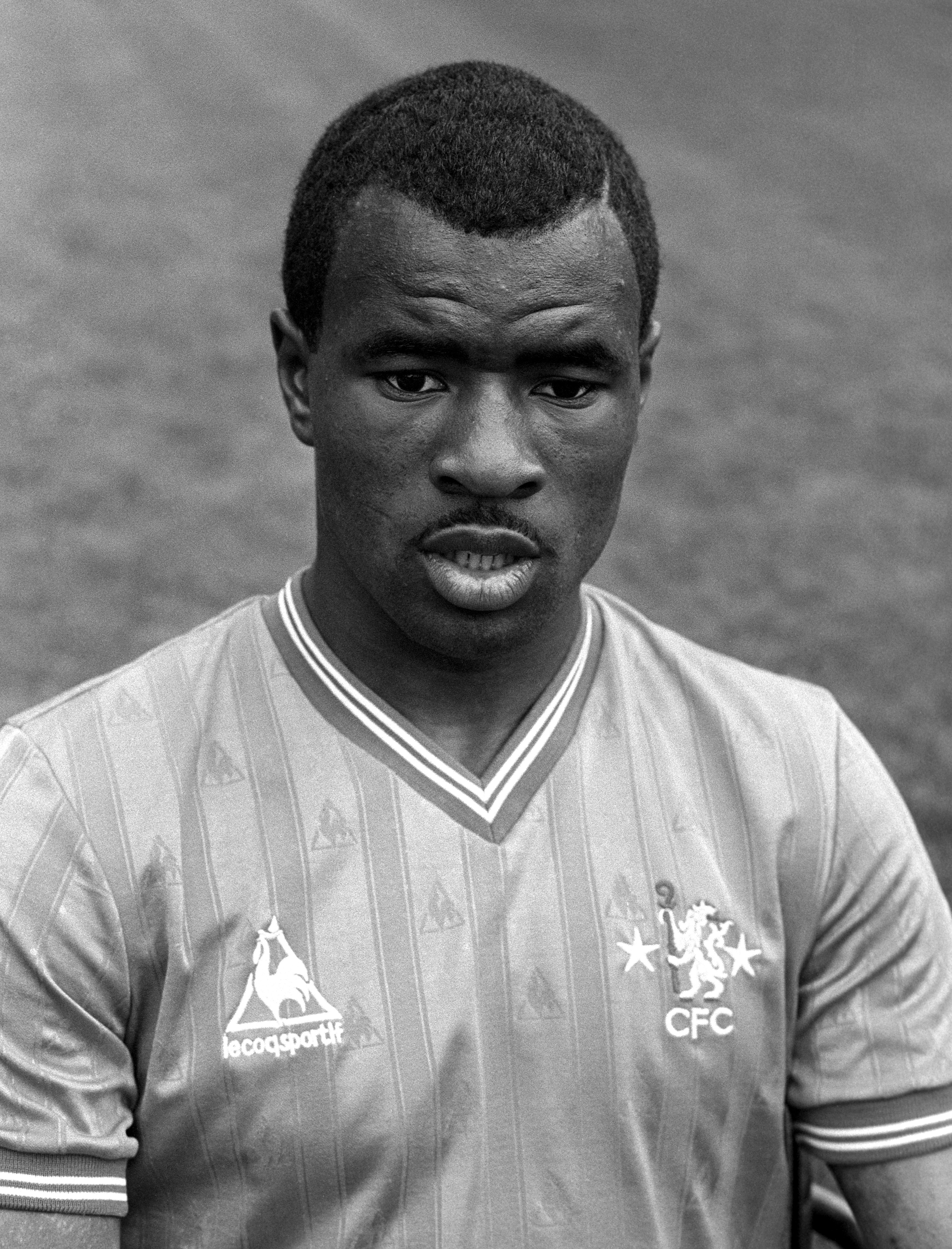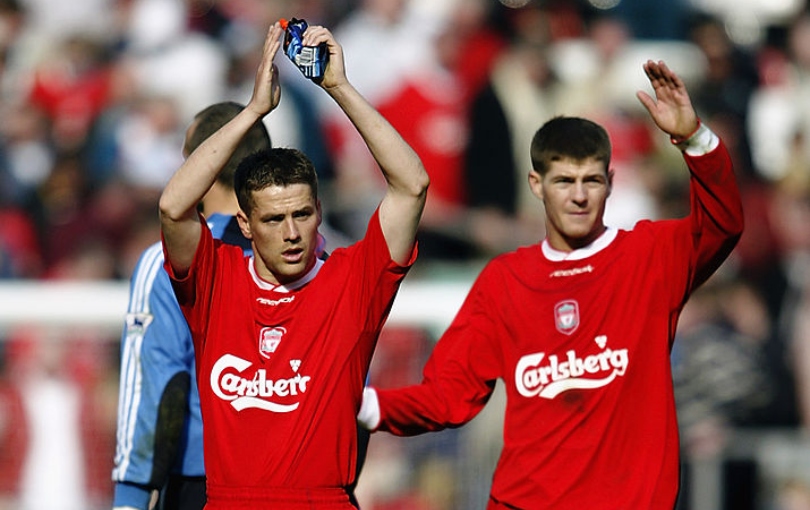Paul Canoville believes sister’s voice saved his life as he battled through coma

Paul Canoville is convinced it was his sister June’s voice that saved his life, cutting through the coma to bring him back from the brink.
Chelsea’s first black player spent six weeks fighting for his life in intensive care in a bleak start to 2021, and can only remember a series of lucid dreams.
Hospital staff would hold a mobile phone to the sedated Canoville’s ear, while his sister June urged him on. The 59-year-old believes those one-way conversations are the reason he recovered, from a cocktail of Covid-19 and three emergency operations after a bowel obstruction.

Canoville was racially abused by his own Chelsea fans in his playing career, has lived on the streets, beaten cancer three times and drug addiction twice – and still rates this year’s near miss as the toughest of all.
Stepping up his anti-racism campaigning after his closest shave yet, Canoville has called on football’s lawmakers to punish abuse from the stands with points deductions for top teams.
Lobbying for the futures of minority youths, Canoville has urged young black people to chase careers with the Metropolitan Police – even calling on his community to accept stop and search procedures.
“My sister couldn’t visit the hospital because of Covid, but the nurses told me she was always on the phone,” Canoville told the PA news agency.
Get FourFourTwo Newsletter
The best features, fun and footballing quizzes, straight to your inbox every week.
“The nurses were holding my hand and telling me that I kept squeezing it every time I heard her voice.
“I was sedated for six weeks, and I was having dreams that seemed so real, and I could never walk, every time I was sitting down.
“On a plane, a fishing boat, a club, I was organising parties, and all the time in my ear hearing someone calling from above calling my name, ‘Paul, Paul? Do you know where you are?’
“Then when I came out I had to gain strength again, and my partner really pushed me through it all.
Paul Canoville Foundation— Paul Canoville (@Kingcanners) November 25, 2021
“It was more than an eye opener. I wouldn’t be able to count up the number of close calls I’ve had in my life, but this one was different, serious.
“More than ever, I know I’ve got to use this platform, challenging racism and standing up for the youth from minority and under-represented communities.”
Canoville was racially abused on his Chelsea debut, and by his own fans no less, at Crystal Palace in April 1982.
The Southall-born winger excelled for his home club, but would later switch to Reading in the hope of a fresh start but a knee injury in 1987 ended his career prematurely and led to some dark places.
Fast forward more than 30 years though, and Canoville now has a suite named in his honour at Stamford Bridge – and can still call Chelsea his second home.
The 59-year-old even makes an appearance in the new official Chelsea board game, all contributing to a deep sense of pride at old wounds, not healed but definitely soothed.
The Paul Canoville Foundation continues to advise and mentor youngsters on the pitfalls of life’s murkier paths.
“To go through all that, homelessness, drug addiction, cancer: I didn’t want any of that, but I have actually experienced it,” said Canoville.
“So who better to share that and show youngsters where not to go?
There’s your boy! Honoured to have been the first black player to appear for @ChelseaFC and to now be considered amongst the club legends.— Paul Canoville (@Kingcanners) November 30, 2021
“As a foundation, we need sponsorship and partnerships to be able to increase our reach, so we’d urge anyone keen to help to be in touch.
“The suite at Chelsea has been amazing, it’s a major sense of pride for me and my family. And to be included in the Chelsea board game, I definitely feel blessed.
“In the old regime when I played, nobody asked how I was. I felt alone, and that I had to play twice as well as my team-mates just to be accepted.
“Today though, people can see that I still represent Chelsea. I played for the best club in the world. I love the owner now and the set-up, Chelsea are doing great work in the community and against discrimination.
“To be told ‘Paul, you did make it easier for other black players to come after you’; if that’s the case, then I’ll accept that.
“But now, when it should be better – it’s worse. Players are receiving it at grounds and then receiving it on social media as well.
“We’ve got to start hitting where it hurts: if you’ve got fans racially abusing players, then teams should be docked points.

“At the end of the season those missing points would be serious. And then it would be the fans who made it stop.”
Canoville met Boris Johnson at 10 Downing Street last week in an event for the Damilola Taylor Trust. With knife crime as prevalent as ever, the ex-Chelsea star urged youngsters from minority communities to take up roles in the police force.
“When I was young I had dreams, but a lot of kids now, their dreams end in their early teens, it’s got to change,” said Canoville.
“I know stop and search as a policy is controversial, but I honestly don’t think it’s that bad.
“When I was young we did see it as being picked on. But when done correctly people are stopped for something suspicious.
“If there’s nothing going on, there should be no trouble. I’ve been on a ride-along with the police and I’ve seen it.
“The police need more black recruits, and black police officers have told me the pros and cons. But it’s a genuine career opportunity, and as a society we need to change organisations from the inside.
“Did I ever think I would get to Number 10? No way. But now I’ve made it this far I’m not about to stop.”
:: For more information and to support the Paul Canoville foundation, visit www.paulcanovillefoundation.co.uk
